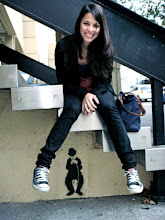
It was interesting to see the interplay between people’s background and their current situation. There was a constant tension between the two. In a way, Thailand represents a melting pot, the capital of the world. Everyone has a different accent and place of origin however, there is no desire to dig into people’s past, culture, or background, but only to enjoy what the city has to offer. Such mantra is exposed in the opening scene as Richard is first introduced: “My name is Richard. So what else do you need to know? Stuff about my family or where I’m from? None of that matters. Not once you cross the ocean and cut yourself loose…” As the film develops, such concept is held constant by omitting stories about characters’ backgrounds. Nevertheless, there is an underneath piercing desire to hold to fragments of the past, which is why Richard decided to leave the map of the beach to his fellow Americans. “I told myself that spreading news was a part of a traveler’s nature, but if I was being completely honest, I was just like everybody else, shit-scared of the great unknown, desperate to take a little piece of home with me.” However, as he was accepted in the island’s community, he became part of a subculture of outsiders whose main rule was secrecy. They were the outcasts of a society that does not even know of their existence. Thus, the fact that Richard lingered to the idea of completely censor himself from his origins was his greatest mistake and reason of punishment: his loose link with America was the cause of his expulsion from paradise.
With a significant larger budget, Boyle finally used special effects in a more in tuned way than in A Life Less Ordinary. Even though these scenes were not realistic per se, they had a clear purpose to enhance the story line. For example, when Richard and the French couple are camping in the first island they reached, we see the sky though Francoise’s camera as she is taking night pictures. Francoise and Richard start to play in front of the camera, and we see their blurry shapes in front of the stars. Such vision of the two externalizes their mutual love interest. Normally, to represent love scenes the camera spins around the couple, as if intoxicated or dizzied. However, in this scene Boyle reinterpreted industry’s standards by conveying the same feeling through a different vehicle. Having said this, we cannot avoid pointing out that Boyle did go overboard when Richard and Francoise finally kiss. His touch was only evident by the use of a higher shutter speed which freezes the images and eliminates the normal cinematic blur. Apart from that, it seems like he followed a checklist and used all the industry standards: full moon, fluorescent shrimps, and spinning camera.
The use of special effects was mostly evident when Richard becomes a character of a videogame. It was clever of Boyle to integrate such a pastime since it is embedded in mainstream society, and thus in the audiences of his film. Boyle used such a metaphors to relate the story while, in a different level, criticizing society. These solitary games alienate the players by transporting them to a desert island, which is why they were perfect to convey Richard’s insanity. As he runs franticly trying to provoke and trick the armed farmers, he tells himself “I was the only one with the overview of how it all fitted together: the island, me, them, the invaders, all connected, all playing the same game.” However, having real blood spread all over his face triggered the game over of these fictional combats and missions.

No comments:
Post a Comment